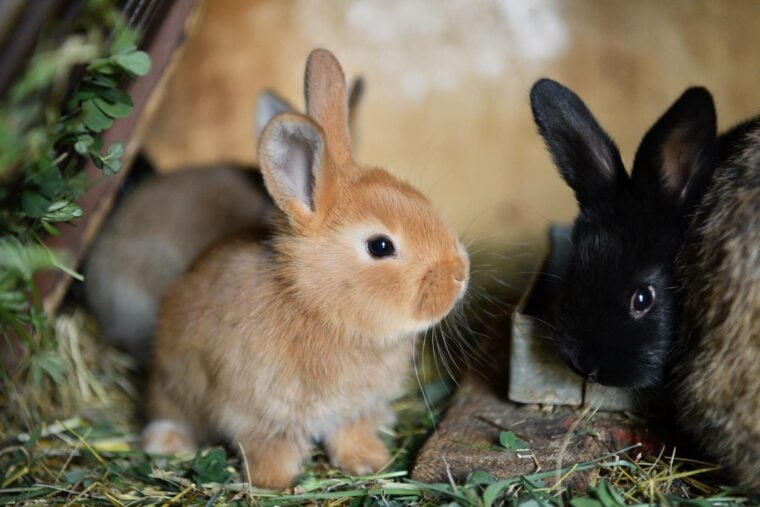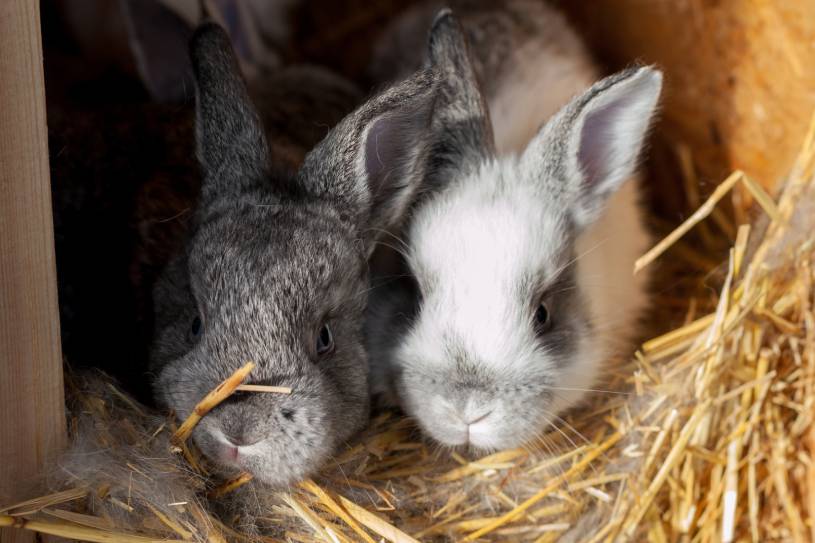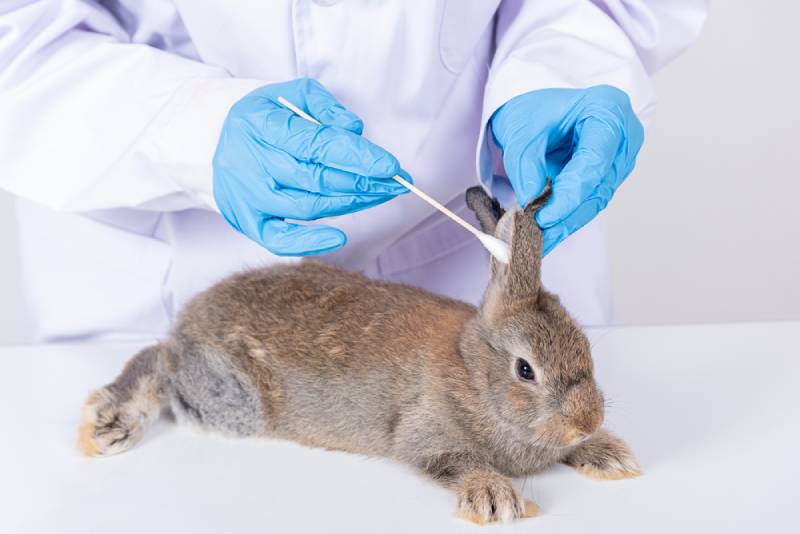
Click to Skip Ahead
If you have a dog or a cat as a pet, it can be pretty easy to tell if they’re happy, whether it is from a pup’s wagging tail or a kitty’s contented “muffin-making” in your lap. With small exotics like rabbits, however, it can be tougher to tell if your fluffy friend is relaxed. Fortunately, rabbits share a similar sound of contentment with cats that can make things easier to decipher, and yes, rabbits can purr.
In this article, we’ll discuss how rabbits purr and how it’s different from the feline version of purring. We’ll also tell you how to distinguish between a contented purr and a similar noise that can indicate the rabbit is painful or in distress. Finally, we’ll cover other signs indicating your rabbit is happy and relaxed.
How Rabbits Purr
Although a rabbit’s purr sounds similar to a cat’s, the noise is produced differently. Cats create their purr by moving air over the vocal cords in their throat. The exact mechanism is a bit of a mystery, but we know the general process of producing the purring sound.
Rabbits purr by rapidly and lightly grinding their teeth together. This movement causes their jaws to vibrate and their whiskers to lift. Like in cats, the behavior tends to be a response to affection, such as petting and cuddling.
Not every rabbit purrs, as some never get comfortable enough with human contact to relax enough for it to happen.

Happy Purr vs. Concerning Teeth Grinding
Just as cats purr not only when they’re happy but also when stressed or sick, rabbits make a noise similar to a purr when they are in distress.
Painful or sick rabbits may grind their teeth, but the movement tends to be slower, and the resulting sound is harsher than a purr. You usually won’t notice the jaw vibration and whisker movement that you do when a rabbit is happy purring, either.
Purring usually only happens as a response to human attention, while distressed teeth grinding can occur while the rabbit is simply sitting on its own. Other unhappy noises that rabbits make include whimpering, thumping their hind feet, growling, hissing, and a shrill scream. These sounds may indicate aggression, fear, or pain.
Other Signs Your Rabbit Is Happy
Besides purring, your rabbit may make other sounds that indicate they are relaxed and happy.
Rabbits also use body language and behavior to show that they feel fine. Happy rabbits have a good appetite and are generally calm and curious. If a rabbit lies down fully extended on the ground in a relaxed manner, you can rest assured they are feeling well.
When your rabbit jumps up in the air, with all 4 feet off the ground, they feel joyous and playful! Help ensure your rabbit stays happy and relaxed by providing them a clean living space, plenty of toys for enrichment, social interaction, and possibly even another bunny friend!

Conclusion
Rabbits are increasingly popular pets as more and more people become aware of how social and loving these animals can be. As with any pet, don’t decide to get a rabbit without first preparing yourself to care for them properly. Rabbits have very specific health, care, and handling needs.
They are also quite delicate and sensitive if those needs aren’t met. Every year, rabbits find themselves in need of new homes because their owners weren’t prepared to take care of them properly. Don’t let your rabbit become a statistic, and do your bunny research before you buy.
Featured Image Credit: Klimek Pavol, Shutterstock










